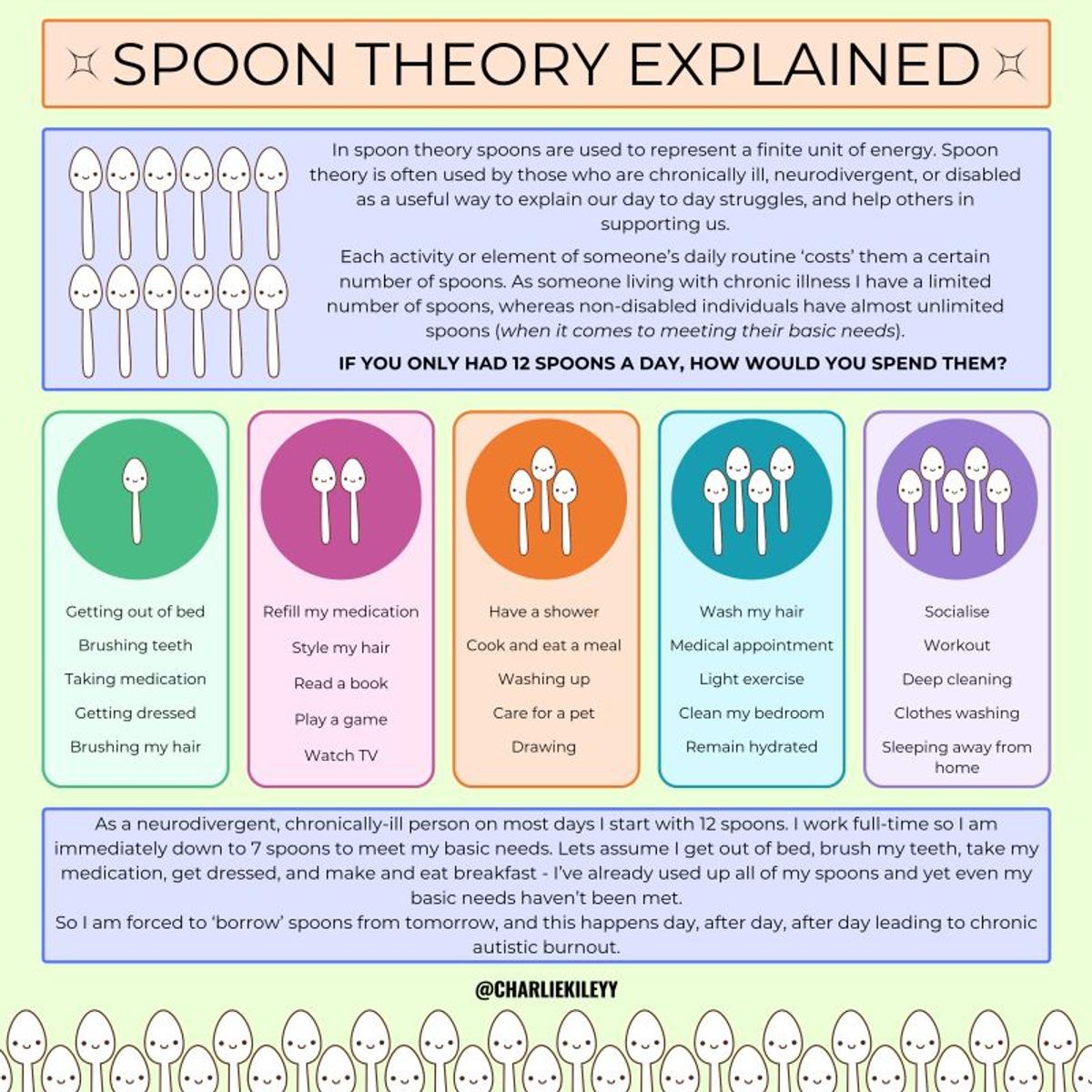wellbeing

This page will be used to share wellbeing information that may be of interest to families
Wellbeing information will also be added to the school website to make it easier to find in the future
Spoon Theory
This week staff did a short PL on 'Spoon Theory'. Some teachers have spoken about it in class. Your children might come home and talk about spoons, here's some more information:
The "Spoon Theory" can be adapted to explain energy levels to primary school children using the concept of "spoons" representing energy. Each activity, like getting dressed or doing homework, uses up a certain number of spoons. Children with chronic illnesses or other challenges may start with fewer spoons and need to manage their energy carefully, as running out of spoons can lead to feeling tired and overwhelmed.
Here's how the Spoon Theory can be explained to primary school children:
Imagine each day starts with a set number of spoons (we used ten as the maximum number of spoons a person can have):
These spoons represent a child's energy and ability to do things.
Every activity uses up spoons:
Getting dressed, eating breakfast, doing homework, playing with friends, and even dealing with loud noises can all use up spoons.
Some children start with fewer spoons:
This could be due to illness, disability, or other challenges that make them more easily tired.
Running out of spoons leads to tiredness:
When a child runs out of spoons, they may feel exhausted, overwhelmed, or unable to do more tasks.
Learning to manage spoons is important:
This means understanding how much energy each activity takes and making choices about what to do.
How to use it with children:
Visual aids:
Use actual spoons or a visual chart to represent the number of spoons a child has and how many they use for each activity.
Check-ins:
Regularly ask the child how many spoons they have left (e.g., "How are your spoons feeling today?").
Pacing:
Encourage children to pace themselves and take breaks when needed.
Prioritising:
Help children understand that they may not be able to do everything they want and need to prioritise.
Open communication:
Create a safe space for children to talk about their energy levels and any challenges they are facing.
By using the Spoon Theory, children can better understand their own energy levels and learn to manage their daily activities in a way that works for them.
